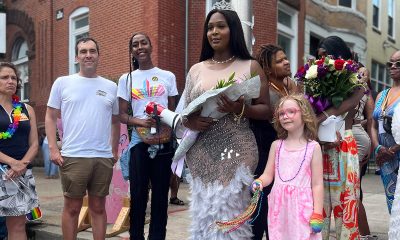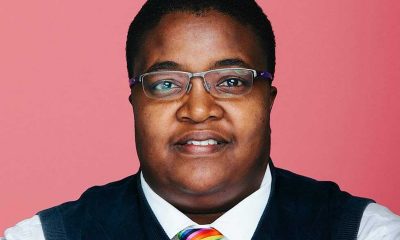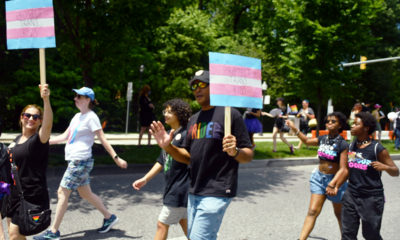Africa
Transgender South Africans urge government to do more to protect them
March 21 was Human Rights Day in the country
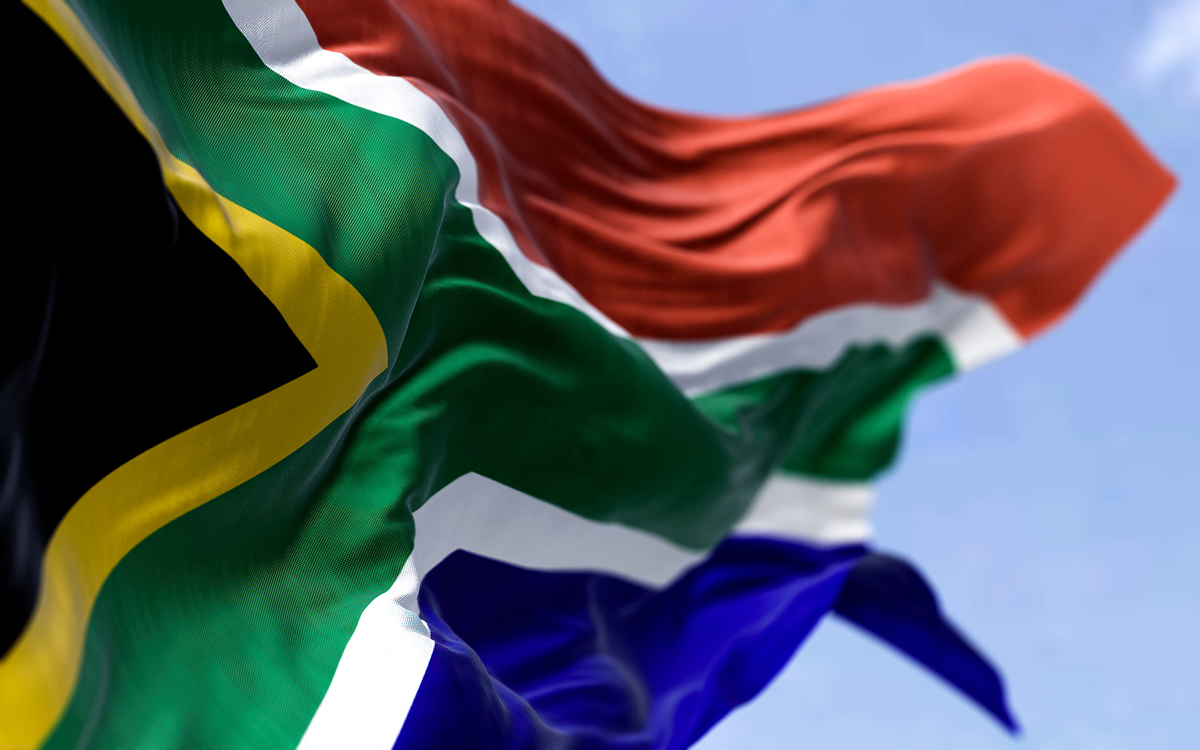
South Africa on March 21 marked its Human Rights Day, notably known as Sharpeville Day in Vereeniging to commemorate those who died in 1960 during the Apartheid regime as they fought for democracy.
Although South Africa is one of the most progressive countries in the world when it comes to the advancement of LGBTQ and intersex rights, many transgender people feel as though the government has not done enough to protect them.
One of the most pertinent issues about which trans people often complain is the lack of urgency around hormone therapy within the public health care system and the Department of Home Affairs’ lackadaisical approach when it comes to gender identity on their national identification cards.
Zade de Kock is a trans nonbinary person who has lived in South Africa since the beginning of 2019.
“I have learnt to understand that I don’t feel comfortable identifying with the gender that I was assigned at birth,” said de Kock. “This means that the gender marker on my birth certificate does not accurately define who I am. This is unfortunately the only document that inaccurately defines me, things like my bank card, passport, and any official website that may need my ID number immediately label me incorrectly. This causes major gender dysphoria which is detrimental to my mental health and it is something that cis-gender people could never fully grasp.”
“It’s undeniable that South Africa has been quite progressive compared to other countries when it comes to understanding the lives of the LGBTQ community but as our community grows so should the understanding of those around us,” added de Kock. “Transgender and nonbinary people of South Africa need to be understood and respected for the humans we are. We are members of every society and we are contributing to life and bliss just like everyone else. We demand to be seen, thus, we ask that we get recognized on official documentation.”
Iranti, an LGBTQ and intersex rights group, said it is now important to sit down with policy makers to ensure LGBTQ and intersex people are not left behind.
“Whilst we celebrate gains that affirm human rights, such as the National Assembly finally passing the Prevention and Combating of Hate Crimes and Hate Speech Bill, which aims to clamp down on various forms of hate speech in South Africa as well as … the Human Rights Commission’s recent Equality Court victory against racist and homophobic musician Steve Hofmeyr for his hateful, homophobic statements regarding LGBTIQ persons, we cannot ignore the ways in which the state continues to fail the LGBTIQ community,” Iranti Communications and Media Manager Nolwazi Tusini said.
“In South Africa, no express law exists for transgender and nonbinary persons to amend their gender markers on their identification documents, except for Act 49. Act 49 allows transgender persons, who have begun their medical transition, (hormonal or surgically) and intersex persons to change the sex descriptor on their identity documents, to reflect their gender identity. This law has been challenged by trans and intersex movements, who have applied for amendments with the DHA (Department of Home Affairs),” Tusini further noted. “The DHA has since promised that the soon to be published National Identification and Registration Bill of 2022 will finally resolve issues of legal gender recognition by removing gender markers from South African identity numbers. Iranti is looking forward to offering public comment to this bill and hopes that the passing of this bill will not be delayed for four years, as happened with the crucial Hate Crimes Bill.”
Tusini also complained about the manner in which intersex babies and children still undergo surgeries to make their sex characteristics fit the male or female binary.
“IGM (Intersex Genital Mutilation) still takes place in several hospitals in South Africa, under other names like corrective surgery, causing severe mental and physical pain and suffering as there is no current law that makes IGM unlawful in South Africa,” Tusini noted. “We need legal protection for intersex people, and we are requesting a sit-down discussion between ourselves and policy makers to put an end to this practice. There is no health risk to being intersex. Children should be allowed to decide for themselves what should happen to their bodies.”
“We reiterate our call for President Cyril Ramaphosa to explicitly commit dedicated State officials and State resources to ensure an end to discrimination and violence against LGBTQI people, as envisaged by our constitution,” Tusini added. “This is crucial in order to promote respect for basic human rights for all and restore and uphold human dignity in line with the Bill of Rights, as promised by the presidency in a recent press release.”
Daniel Itai is the Washington Blade’s Africa Correspondent.
Africa
Lesbian South African MP named to country’s new Cabinet
Steve Letsike won a seat in the National Assembly on May 29
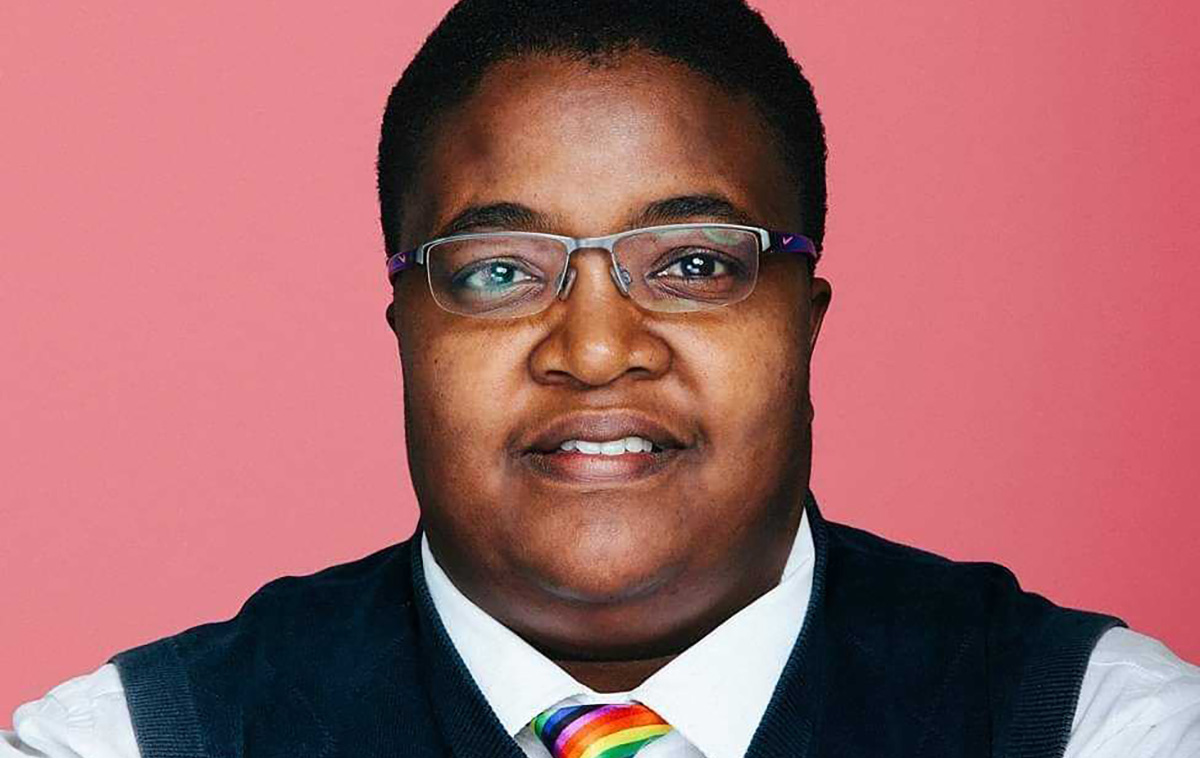
South African President Cyril Ramaphosa on Sunday appointed lesbian MP Steve Letsike to his Cabinet.
Letsike, founder of Access Chapter 2, a South African advocacy group who is a member of the African National Congress that Ramaphosa leads, will be the country’s deputy minister of women, youth, and people with disabilities.
Letsike won a seat in the South African National Assembly in national and provincial elections that took place on May 29.
The ANC lost its parliamentary majority that it had had since Nelson Mandela in 1994 won the South African presidency in the country’s first post-apartheid elections. Ramaphosa on Sunday announced Letsike and other new Cabinet members after the ANC and nine other parties agreed to form a National Unity Government.
The Washington Blade has reached out to Letsike for comment.
Africa
Congolese justice minister orders prosecutor general to arrest LGBTQ allies
Constant Mutamba issued directive on June 15, implementation unclear
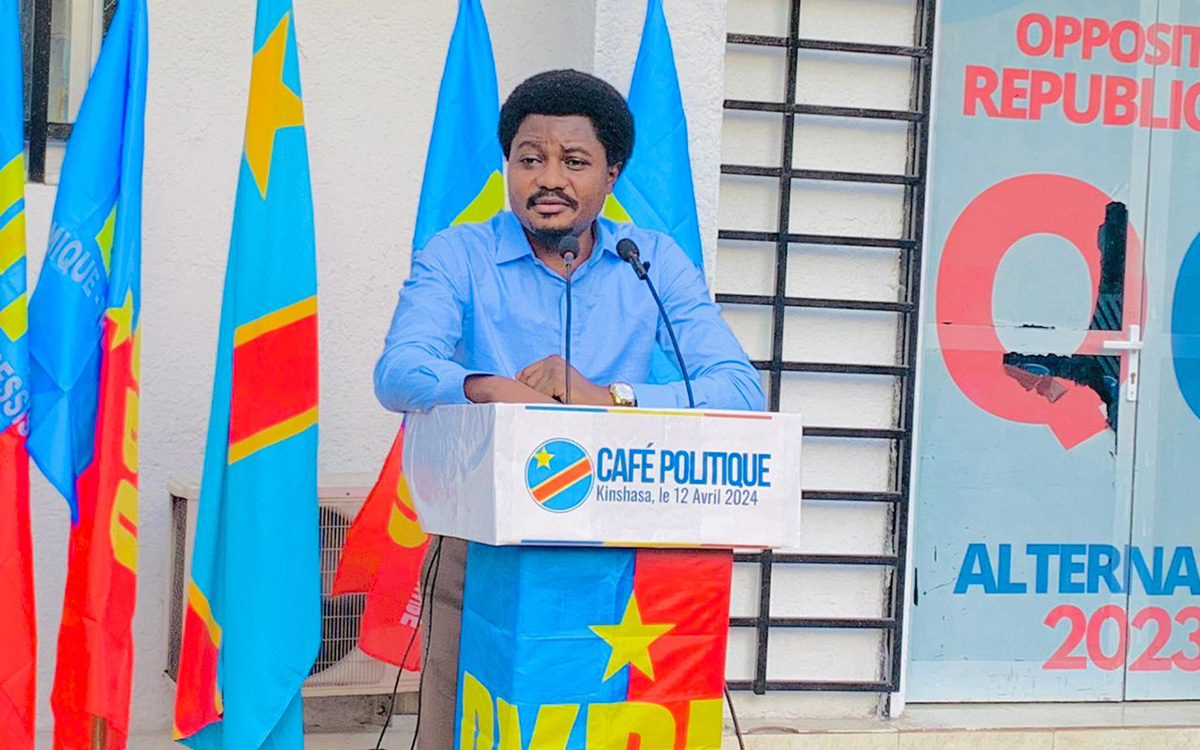
Congolese Justice Minister Constant Mutamba has instructed his country’s prosecutor general to arrest LGBTQ allies.
The newly appointed justice minister in a June 15 communique said the prosecutor general should initiate legal proceedings against people who advocate for the LGBTQ community in Congo.
Although same-sex marriages are constitutionally prohibited, there is currently no law that criminalizes consensual same-sex sexual relations. The communique has raised a lot of eyebrows from social and LGBTQ activists who are asking on what grounds Mutamba issued the communique.
“He could have started by initiating a bill in this direction, but in the current Congolese legislation he is missing the point,” said Jean Claude Katende, a Congolese human rights activist who is the president of the African Association of Human Rights. “If he wants to repress homosexuals, he must initiate a law which must make this behavior an offense and have it punished. He will be arrested for complicity in arbitrary arrests. The constitution is clear, no one can be prosecuted for an act which does not constitute an offense.”
Khelver Hermano, a Congolese social commentator, said the law should not be interpreted based on one person’s emotions.
“LGBT marriage is already not applied in the DRC but the minister wants to incarcerate those who do it informally without a legal basis,” said Hermano. “The law is not interpreted according to our will.”
“Does the penal code in the DRC recognize polygamy? Why don’t we arrest all these known polygamists?” asked Hermano. “Just as polygamists are not prosecuted, we cannot do so against LGBT people.”
Many Congolese people, however, have welcomed the communique, arguing same-sex relations are un-African and unorthodox.
Article 172 of the country’s penal code states a person “who commits a moral crime by exciting, facilitating or promoting to satisfy the passions of others, debauchery or the corruption of persons of either sex under or apparently under the age of 21 years shall be punishable by a prison term of three months to five years or a fine.” Article 176 says a person “who engages in activities against public decency shall be punishable by a prison term of eight days to three years and/or a fine.”
Although not entirely applicable, the prosecutor general can use these two penal code articles to initiate the arrests — the country in recent years has seen some arrests of LGBTQ people.
The June 15 communique is not the first time Mutamba has come out against the LGBTQ community.
Mutamba earlier this year introduced a bill that would criminalize acts of homosexuality. The proposal received widespread support, particularly on social media where many Congolese people described it as a turning point for the country and for the continent at large.
Although parliament has not formally debated the bill, activists are concerned it will pass without many major objections because most MPs have previously said they do not support the LGBTQ community. It remains unclear how the prosecutor general will executive Mutamba’s communique.
Africa
Prominent South African activist elected to country’s parliament
Steve Letsike founded Access Chapter 2

A prominent South African LGBTQ activist has won a seat in the country’s parliament.
Steve Letsike, a lesbian woman who founded Access Chapter 2, a South African advocacy group, is a member of the African National Congress. She is also part of the ANC’s National Executive Committee that determines the party’s direction.
Letsike won a seat in the South African National Assembly in national and provincial elections that took place on May 29.
The ANC lost its parliamentary majority that it had had since Nelson Mandela in 1994 won the South African presidency in the country’s first post-apartheid elections. MPs earlier this month re-elected President Cyril Ramaphosa after the ANC invited the Democratic Alliance and other parties to form a Government of National Unity.
Letsike in a statement to the Washington Blade described her election as “a milestone for the people of South Africa, and also affirmative of our party’s posture that is inclusive and intention to transformation agenda.”
“I am not in parliament for myself but the people that trusted the ANC to send individuals that will put people first,” said Letsike. “In that cohort that includes the LGBTI people like myself. Rooted in the teaching of a just society, that seeks equality and believes in the rule of law. That demand on developmental agenda from a queer lens and clear priorities of the people is important.”
“I am delighted by this task, trust and hope for our people,” she added.
-

 Canada1 day ago
Canada1 day agoToronto Pride parade cancelled after pro-Palestinian protesters disrupt it
-

 Theater4 days ago
Theater4 days agoStephen Mark Lukas makes sublime turn in ‘Funny Girl’
-

 Baltimore3 days ago
Baltimore3 days agoDespite record crowds, Baltimore Pride’s LGBTQ critics say organizers dropped the ball
-

 Sports4 days ago
Sports4 days agoHaters troll official Olympics Instagram for celebrating gay athlete and boyfriend

